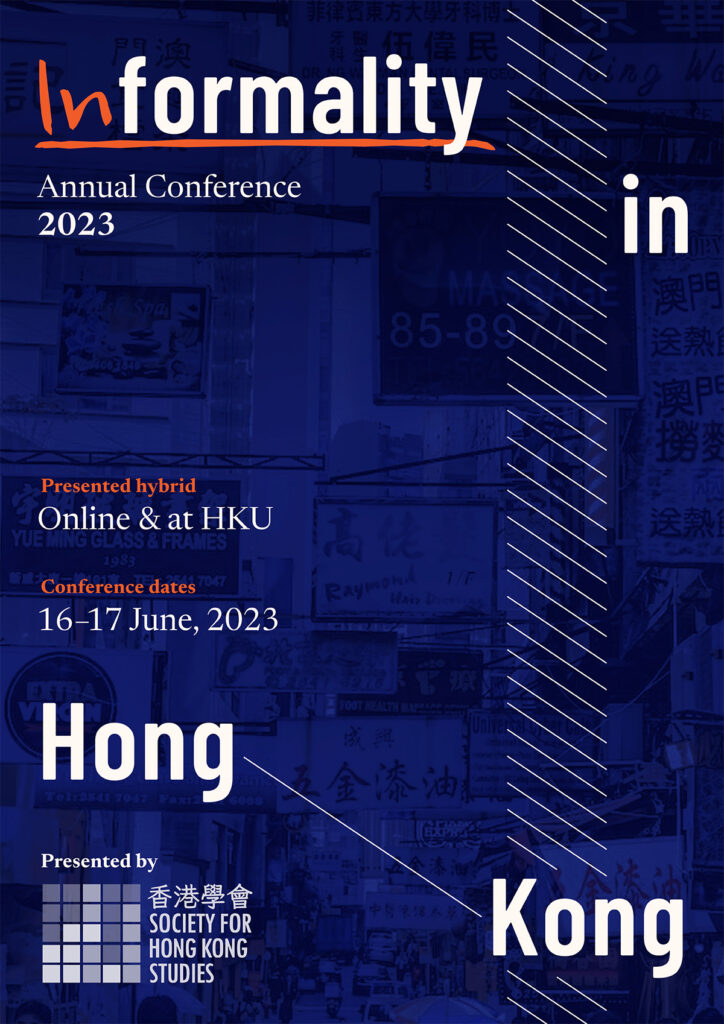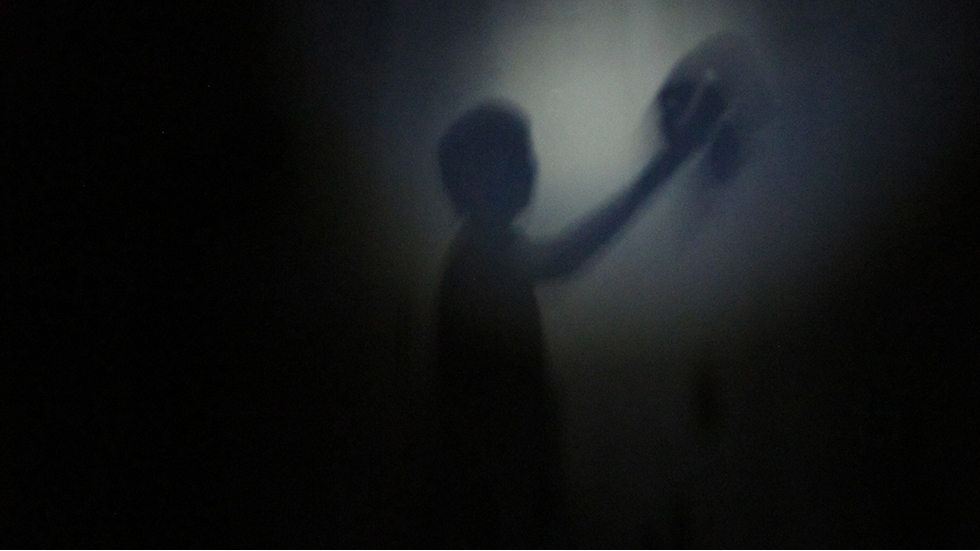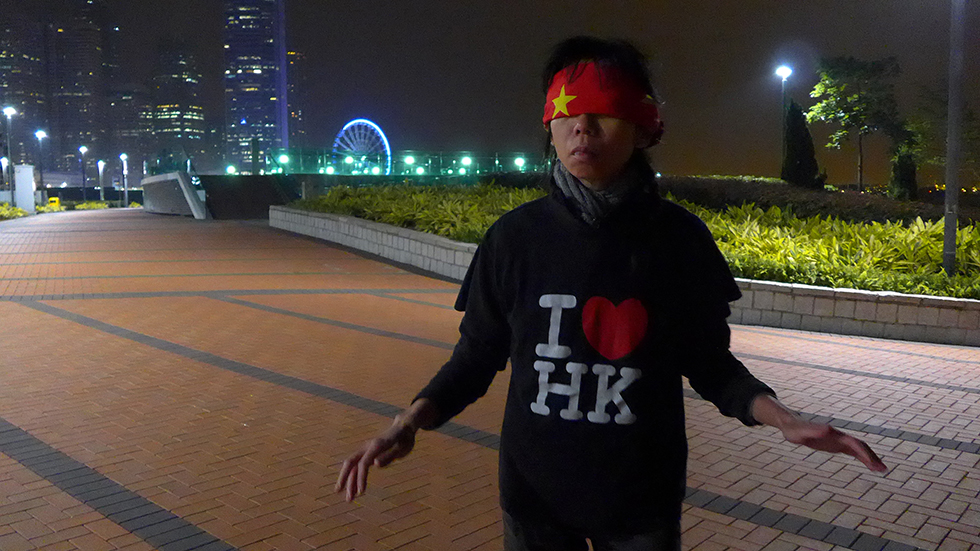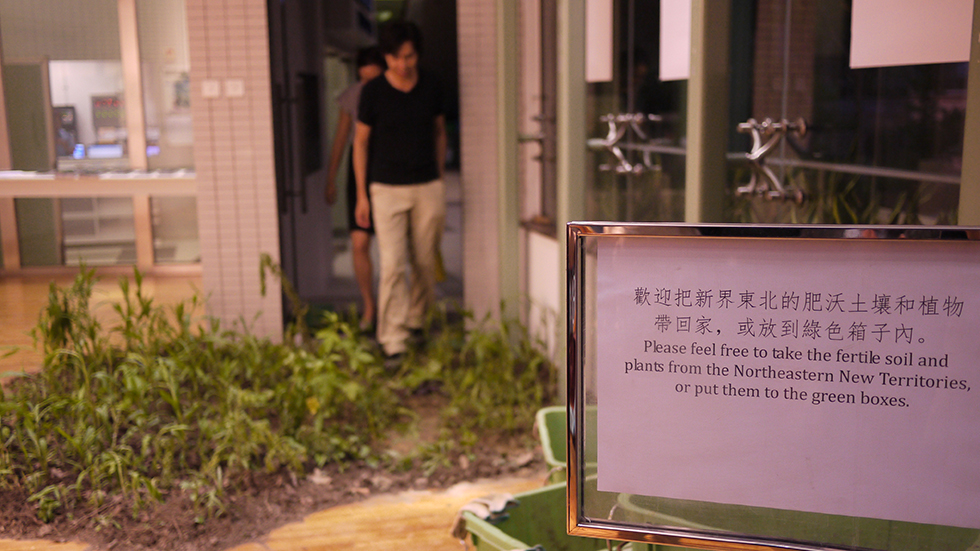
This panel delves into informal cultural practices that have emerged in the complex political and social landscape of Hong Kong. These cultural practices are produced outside of governmental and institutional domains, and encompass independent cinema, art projects, socially engaged art and public monuments. They also offer alternative approaches to preserving and transmitting personal and/or collective memories in a resilient and reflective manner. Galileo Cheng’s paper examines how the experimental documentary film Blue Island (2022) uses re-enactment of personal memoirs to counter canon narratives and build a space for activism among Hong Kong’s diasporic communities through the transmission of individuals’ memories and emotions. Evelyn Char analyzes how Hong Kong artist Law Yuk-mui’s Song of the Exile (2022) – a work of improvised cinema on migration and diaspora across Asia – unmoors Hong Kong from the margins of empires and proposes an alternative, deterritorializing geographic imaginary of the city. wen yau’s paper discusses how the different versions of the Goddess of Democracy statues in Hong Kong serve as counter-monuments of national identity and shape public memory and political aspirations. Clara Cheung offers insights into how painting has been used to recover the voices and subjectivity of politically suppressed individuals after their traumatic experiences in social movements. Together, these papers offer a multifaceted exploration of Hong Kong’s informal cultural practices, highlighting their significance as a means of producing counter-hegemonic narratives, fostering resilience, and recovering memories especially after traumatizing experiences.
Society for Hong Kong Studies Annual Conference 2023: Informality
Panel 15 | 15:00–16:30, 17/06/2023
Chair:
Dr. Helen Grace, University of Sydney
Panelists & Paper:
- Unmooring Hong Kong: Alternative Geographic Imaginary and Deterritorialization in Law Yuk-mui’s Song of the Exile (2022)
Evelyn Char, University of California, Santa Cruz - Re-enactment of resilience building: Blue Island and “my” representation of Hong Kong Memories
Galileo Cheng, University of British Columbia - Painting Hong Kong in the gap of the sense memory and collective memory
Clara Cheung, University of York - Discursive-performative Analysis of the Goddess of Democracy as a Counter-Monument of National Identity in Hong Kong
wen yau, independent artist/researcher
My paper “Discursive-performative Analysis of the Goddess of Democracy as a Counter-Monument of National Identity in Hong Kong” examines the different versions of the Goddess of Democracy statues in Hong Kong and their role as counter-monuments of official national identity. Using a discursive-performative analysis and gender lens, it investigates the role of informal cultural practices in shaping public memory and political aspirations. These statues challenge the normative status of monuments as permanent architectural spaces for commemoration and formal discourse on national identity and Hong Kong’s relationship with China.
The analysis begins with the first statue, a replica of the one in Beijing in 1989, and the second one created by a Chinese artist in 2008 and displayed in Chinese University of Hong Kong, reflecting how memories of the Chinese pro-democracy movement were passed down from one generation to the next. As protests, vigils, and all related monuments have been precluded since 2020, the statues were transformed into abstract motifs and embodied acts by people in Hong Kong and resurrected in various cities around the world. To counteract these nationalist sentiments, the Lady Liberty Hong Kong statue, whose name obviously refers to the one in New York, was created during the 2019 unrest. It depicts an armed protester and serves as a parade mascot to convey a strong local identity.
Gender is often an overlooked aspect of the statue. These protest objects used fragile and sacrificing female figures to represent people’s political aspirations and frustration, as well as the fantasy of long-desired democracy. The discursive-performative analysis concludes with the paradox of these statues as counter-monuments: as a gesture of resistance, they challenge the formal discourses on nationalist vis-à-vis local identities, while conveniently borrowing symbols from other cultures to invest in political fantasy and disregarding ideological constructs such as gender.
 The panel is part of the SHKS Annual Conference 2023: Informality in Hong Kong, convened by the Society for Hong Kong Studies.
The panel is part of the SHKS Annual Conference 2023: Informality in Hong Kong, convened by the Society for Hong Kong Studies.


